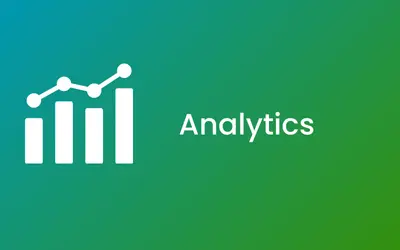Dubai, the most populous city in the United Arab Emirates, is known for its rapid economic growth and innovation-driven initiatives. The city’s vast network of businesses creates significant demand for professionals skilled in analytics and data science. For those interested in pursuing a career in these fields, an analytics course in Dubai provides an excellent opportunity to gain the necessary skills and knowledge. Analytics is a crucial component of any organization, as it enables businesses to make data-driven decisions. An analytics course in Dubai provides students with the opportunity to learn analytics techniques and tools used in industries such as finance, healthcare, marketing, and more. Analytics courses often cover areas such as data mining, machine learning, statistical modeling, and data visualization. There are several institutions in Dubai that offer analytics courses for both beginners and experienced professionals. Some of the notable institutions providing analytics courses in Dubai include the University of Dubai, American University in Dubai, and ExcelR Solutions. These institutions offer flexible course schedules and training programs that cater to the needs of working professionals and students with busy schedules. The University of Dubai offers an MSc in Business Analytics program that is designed to provide students with a comprehensive understanding of analytics techniques and tools. The program covers topics such as database management, business intelligence, business analytics, and predictive modeling. The program also provides students with practical experience in the form of case studies and real-world projects. The American University in Dubai offers a graduate program in Business Administration and Analytics that focuses on the integration of data science, business intelligence, and decision-making. The program covers a range of topics including data management, data visualization, operations research, and predictive analytics. The program also includes hands-on experiences through internships and consulting projects. ExcelR Solutions is a training and consulting firm that offers analytics courses in Dubai. They offer a range of courses from beginner to advanced levels, covering topics such as data science, machine learning, and business analytics. ExcelR Solutions also offers customized corporate training programs to businesses seeking to upskill their employees in analytics. In conclusion, Dubai offers a range of analytics courses that provide students and professionals with the skills and knowledge required to excel in the field. Pursuing an analytics course in Dubai can help students and professionals leverage the growing demand for analytics professionals and explore diverse job opportunities across various industries. With the city’s vibrant business ecosystem and growing demand for data-driven decision-making, an analytics course in Dubai can be a powerful tool for accelerating one's career.

₹60,000


Watch how students, freshers, and professionals transformed their careers with Skillfloor's Analytics Courses Reviews
Hurry Up!
Limited seats call us now for amazing discounts on Analytics Courses course



Skillfloor is a Government-Recognized Skill Development Institute under Startup India (DPIIT), offering career-focused certification programs in Analytics, Artificial Intelligence (AI), Data Science, Digital Marketing, SEO, and related domains. As one of India's largest training institutes, our courses emphasize hands-on projects, expert mentorship, and skills aligned with real hiring needs. With flexible learning options - online, offline, and hybrid, plus 100% scholarships for selective students, we make quality, job-ready education accessible.
Explore the program that aligns with your goals and take the next step with Skillfloor.



- Overview of data analysis and its importance in business
- Types of analytics: Descriptive, Predictive, Prescriptive
- Role of data in decision-making processes
- Introduction to common tools: Tableau, PowerBI, Excel
- Ethical considerations in data collection and analysis
- Data sources: Primary and secondary data
- Data collection methods (surveys, web scraping, databases)
- Data cleaning techniques (handling missing values, outliers)
- Data transformation and feature engineering
- Data storage concepts (structured vs. unstructured data)
- Descriptive statistics: Mean, median, mode
- Data visualization basics (histograms, scatter plots)
- Identifying data patterns and trends
- Outlier detection and handling methods
- Correlation and causation analysis
- Inferential statistics and probability theory
- Hypothesis testing (t-tests, chi-square tests, ANOVA)
- Measures of central tendency and variability
- Confidence intervals and margin of error
- Regression analysis: Linear and logistic regression
- Principles of effective data visualization
- Types of charts and their uses (bar, line, pie, heatmaps)
- Designing dashboards for different audiences
- Interactive visualization techniques
- Data storytelling for impactful presentations
- Time series analysis and forecasting methods
- Clustering and segmentation analysis
- Decision trees and classification techniques
- Introduction to machine learning in business analytics
- Model evaluation and selection
- Basics of SQL for data manipulation
- Creating databases and relationships
- Aggregating data with SQL (GROUP BY, JOIN)
- Data modeling for business intelligence (star and snowflake schemas)
- Case study: Building a business model with SQL
- Connecting and preparing data in Tableau
- Creating basic visualizations (charts, maps)
- Advanced Tableau functions (LOD calculations, table calculations)
- Building interactive dashboards and stories
- Publishing and sharing visualizations on Tableau Server/Online
- Introduction to PowerBI workspace and components
- Data import and transformation with Power Query
- Data modeling and relationships in PowerBI
- Creating and customizing visualizations
- Publishing and collaborating on PowerBI Service
- Selecting a real-world dataset for analysis
- Defining business questions and objectives
- Conducting data analysis and visualization
- Presenting findings in a comprehensive dashboard
- Peer review and feedback on project